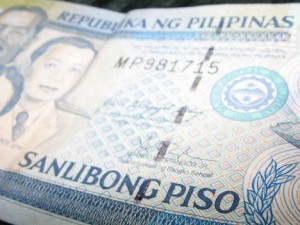
This was according to Omar Cruz, president and CEO of bancassurance firm BPI-Philam, who said that now is the most appropriate time to invest in peso-denominated assets because the country’s leap to investment status may be imminent.
“It’s just a matter of time when the next notch of increase in the country’s credit rating will happen and bring us to investment grade. If you are not in the market early enough, and you come in when [the upgrade investment grade] has already happened, you will have lost a lot of [income] opportunity,” Cruz said.
He said it was prudent for people who have extra funds to now invest in portfolio assets, such as those being offered by BPI-Philam, to generate profit in the near future.
He was speaking during a “money summit” organized by insurer Philam Life and BPI-Philam held on Friday in Pasay City. BPI-Philam is the financial services firm formed from the alliance between Philam Life and Bank of the Philippine Islands.
Cruz, who is a former national treasurer, said the equities market of the Philippines has been the top performer in Southeast Asia in terms of equity-price gains from 2009 to the present.
He said this trend is expected to continue, and the gap between investment gains in the Philippines and the rest of Southeast Asia will be even more pronounced once the country is granted investment grade status.
Cruz cited the debt-to-GDP ratio of the Philippine government, which he said is already about the same as those of country’s enjoying investment grade.
Citing estimates by the International Monetary Fund, Cruz said the domestic debt of the national government of the Philippines is now just about 40 percent of the country’s gross domestic product, or 50 percent based on the IMF’s slightly different method of computing the ratio.
Cruz said credit rating firms require the debt-to-GDP ratio to be at 40 percent or lower for a country to deserve an investment grade.
He also said the ratio is expected to improve further and settle at only 30 percent by 2017.
Cruz also cited the healthy level of foreign-exchange reserves of the Philippines, adding these help shield the country from shocks brought about by market volatility caused by economic woes in industrialized countries.
The Philippines’ gross international reserves stand at about $76 billion, which is enough to pay for 11 months’ worth of imports, and is equivalent to six times the country’s foreign currency-denominated debts maturing within the short term.
“Many countries will be threatened by shocks coming from Europe, and maybe the United States. This is because their dollar reserves may be depleted [when central banks use reserves to defend their currencies],” he said.